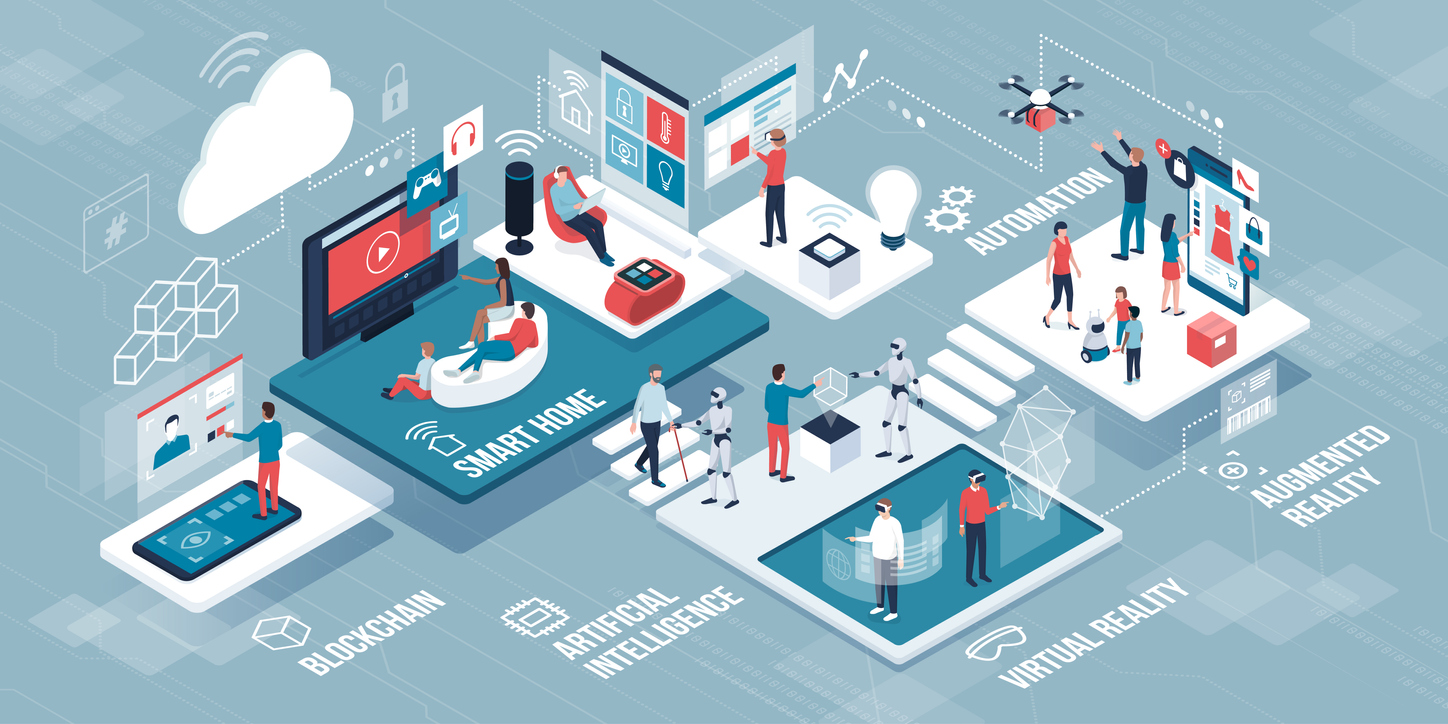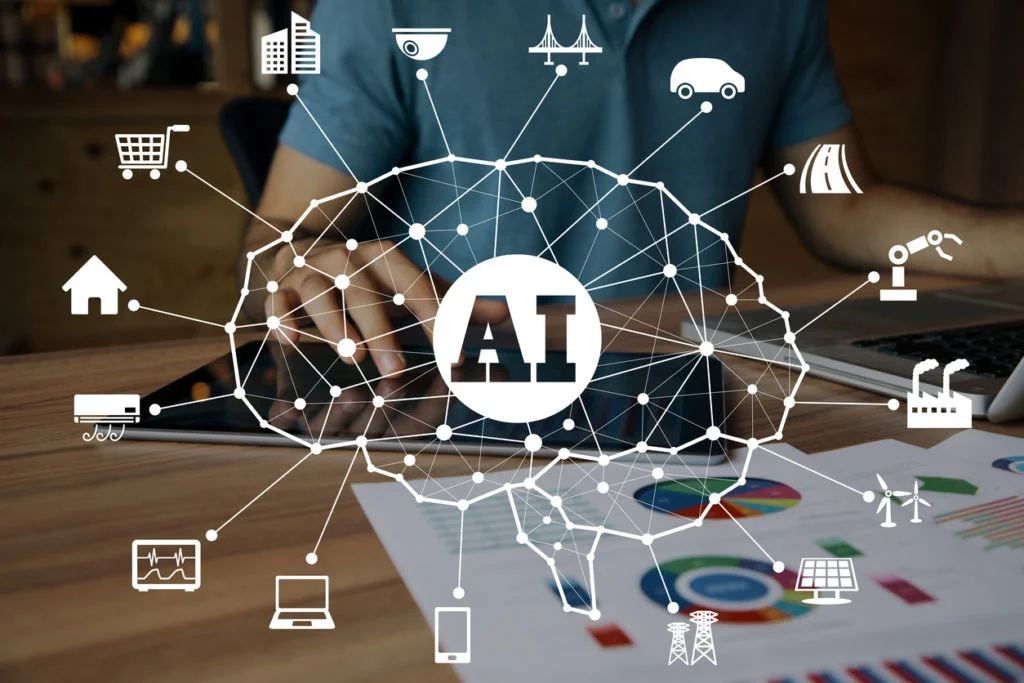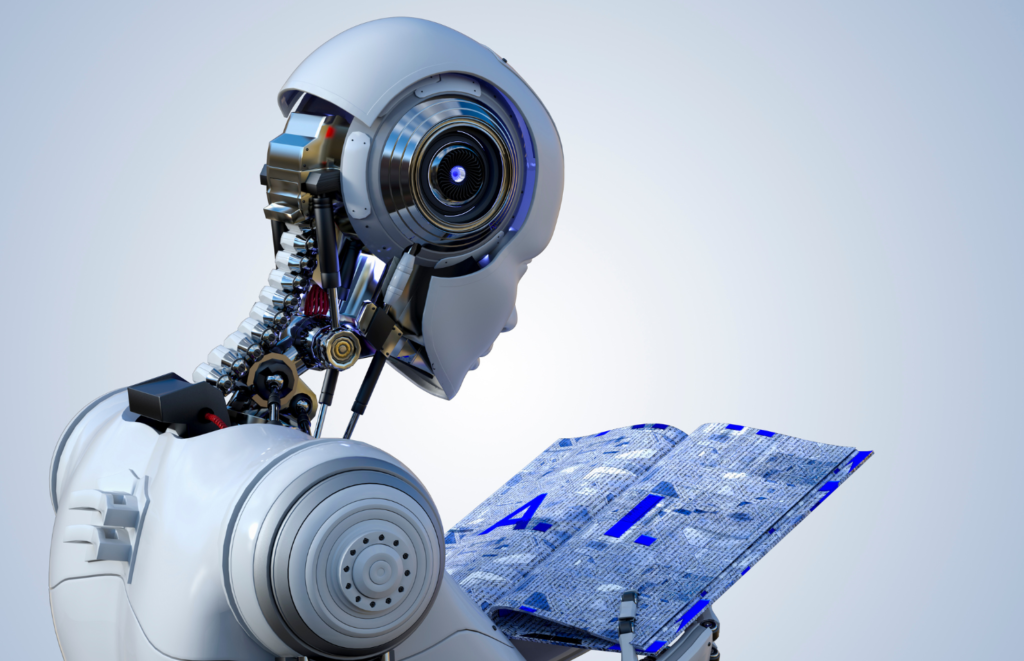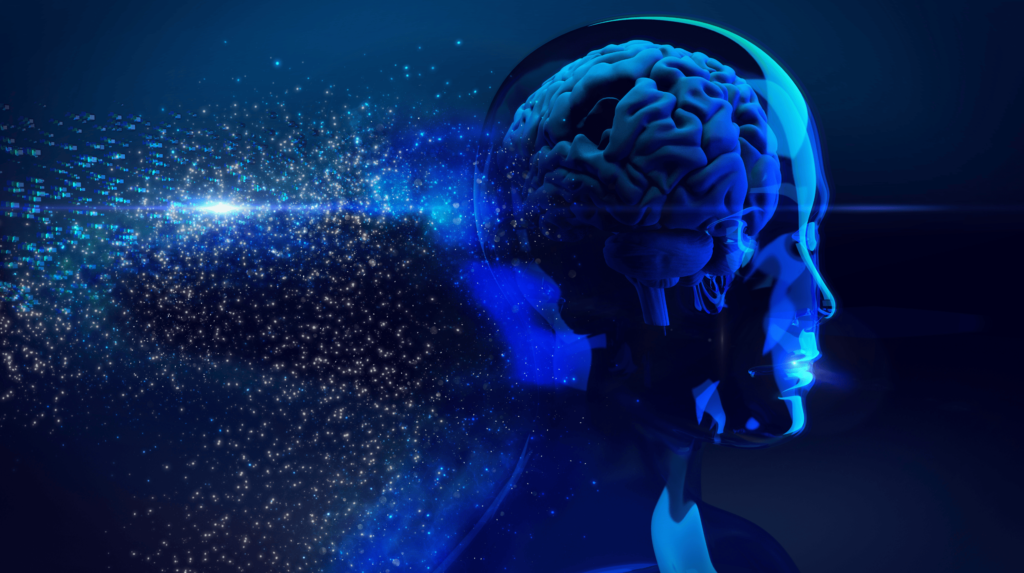Two technologies that are leading change and innovation in almost every industry are the blockchain technology and artificial intelligence (AI). Considering this, a question often comes into mind: What would happen if the AI and blockchain technologies intersected? Let’s find out.
The Synergy Between Blockchain and AI Can Help Create a Better Tomorrow
There are several benefits of the synergy between blockchain and AI. Often referred to as collective intelligence, the collaboration of AI with a decentralized ecosystem such as blockchain is expected to change the landscape of the digital economy. The collaboration between AI and blockchain isn’t just for the future. Instead, it is already happening. Example of this is the blockchain-based marketplace SingularityNet. In December 2017, the company held an ICO and it was able to raise over $35 million.
Another company Neuromation that provides deep learning applications with a data platform made $50 million token sale in only eight hours. There are other companies as well that are trying to combine AI and blockchain technologies for a better tomorrow. An example of this is doc.ai, a solution that aims to achieve quantified insights about healthcare and biology. In short, the convergence of AI and blockchain is the beginning of a new era. This is enabled by the individual capabilities of both the AI and blockchain technology. What are these capabilities? Let’s look.
Benefits of the Blockchain Technology
A technology widely applied in a range of fields and business sectors, the blockchain technology had made economic transactions seamless and more transparent. Additionally, the value added by the blockchain technology is increasing by the day. According to Gartner, the blockchain technology will grow to over $3 trillion by the year 2030.
Additionally, IDC predicts that spending on blockchain will increase to $11.7 billion by 2022. Today, almost 70% of the banks worldwide are experimenting with blockchain technology to make their processes more transparent, seamless, and secure. It is predicted that these banks will be able to save billions of dollars each year by embracing blockchain.
The key features of blockchain that are driving its adoption include transparency, immutability, data protection, distributed ledger, and decentralized database. There are several advantages of embracing the blockchain technology. One of them is that blockchain is decentralized. This means that data on a blockchain network can be shared without a ‘central authority’. The benefit of this is that transactions can be verified and processed without any central force.
The decentralized nature of blockchain ensures its consistency and durability. Since there is no central point in blockchain vulnerable to attack, the technology can withstand hostile attacks on its systems. Finally, blockchain technology ensures the accuracy of timelines, information, and authenticity.
We cover a lot of business benefits that the distributed ledger technology generates in our Blockchain blog series.
Benefits of Artificial Intelligence (AI)
The artificial intelligence (AI) industry is growing at a rapid pace. According to PWC, AI could contribute over $15 trillion to the global economy in 2030. Additionally, it is predicted that the global AI market will grow to $190 billion in worth by the year 2025. The prediction for the current year is that AI will be used in 40% of digital transformations.
In the next few years, we will also see a proliferation of AI-enabled voice assistants. Moreover, companies using AI will deprive the companies not using the technology for insights of $1.2 trillion a year worth of revenue. This is how important artificial intelligence (AI) will be in the future. Even today, AI is providing users with several benefits. These benefits are enabled by the key features of the AI technology which include data mining, personalization, error reduction, better data management, real-time assistance, and future prediction.
The advantage of employing AI is that unlike humans, machines never get tired and they can thrive even in the most hazardous of conditions. As a result, they can perform tasks such as mining and space exploration with relative ease. For businesses, trusting AI with data analysis is one of the best decisions they can make. This is because AI can ensure accuracy in data analytics by easily analyzing unstructured data and providing results in real-time.
For more examples of AI benefits across various industries see our AI blog series.
With the individual benefits of the blockchain technology and AI discussed, let’s find out how the integration of these technologies can help bring about a better tomorrow.
How the Convergence of AI and Blockchain is the Beginning of a New Era
Today, AI and blockchain are two of the most prominent innovations facing organizations. While most organizations are focused on leveraging these technologies separately, a few are looking towards the convergence between. So, how will the convergence between AI and blockchain impact the enterprise?
Many of the problems that enterprises have been facing since a very long time can be overcome with the integration of AI with blockchain. On one hand, blockchain allows the exchange of valuable data with complete transparency. On the other hand, AI can leverage this data to provide valuable insights with any human assistance. AI can help to build an incredibly secure transaction and encrypted data exchange ecosystem by driving immutability in a blockchain network. Additionally, the convergence of AI and blockchain can enable organizations to execute business transactions with governmental knowledge. This, in turn, can help organizations to drive business growth over the next quarter, year, decade, and beyond.
With blockchain, AI can be decentralized and made open. On the other hand, AI can equip blockchain with the intelligence it needs to work through silos and perform data analysis in a better way. Following are some of the benefits of combining AI with blockchain.
1. Decentralized Intelligence
Artificial intelligence (AI) can help blockchain to take the leap forward. Transactions in a blockchain network will be more secure if it is powered by AI algorithms. AI capabilities such as multidimensional data transformations, natural language processing, and image recognition can streamline blockchain P2P link in real-time. Additionally, AI can help to optimize the transaction data in the blocks. This makes the transaction process faster.
In addition to the above, the power of machine learning intelligence can enhance transactional flexibility. Moreover, organizations can develop cost-effective and distributed AI services through specific events and then use smart contracts to ensure their availability.
On the other hand, there are several problems with existing AI-driven business models. These include fraudulent contracts, abuse of data, privacy concerns, and more. Because of this, creating fully open data systems is nearly impossible.
AI requires seamless access to the data from the entire business ecosystem to produce the most accurate decision. Blockchain can ensure this. This is because there is no central authority in the blockchain network and all parties will be more willing to share data.
Also, the consensus algorithm would ensure that the data in the blockchain does not lose its credibility by helping to avoid such a scenario. Once AI gets access to data supply from multiple stakeholders, it can dig deep into the data to understand behavior and patterns and come up with insights never witnessed before.
2. Enhanced Data Protection
AI depends heavily on the data provided to it by humans. Additionally, it improves this data through machine learning. AI looks to gather data about the interactions between humans and other details. With blockchain, you can encrypt data on a decentralized system to run a completely protected and secure database that can be accessed only by authorized users. So, when you combine AI with blockchain, you establish a secure decentralized AI system that contains sensitive information such as financial or medical data. In short, the convergence of AI and blockchain can enhance data protection.
3. Increased Trustworthiness of AI systems
The combination of AI and blockchain can help to make the AI system more trustworthy. This is great news since the credibility of a system depends on its trustworthiness. Compared to a closed system, such as AI, blockchain is a far more transparent technology. Data is encrypted in blockchains and it can be accessed only by authorized users.
Therefore, it is virtually impossible for unauthorized people to view anything on the blockchain network. This increases the trustworthiness of the blockchain network. When blockchain is combined with AI, then the trustworthiness of the AI system also increases.
4. Enhanced Efficiency of Blockchain
The cost of executing a P2P transaction in blockchain quickly and effectively is roughly $600 million per year. A major reason for this is that the same task is executed by each node on its own copy of data. This occurs because each node wants to be the first to arrive with a solution. With AI, this situation can be improved.
This is because AI can identify the node which will be the first to deliver the solution. Additionally, it can inform all other nodes to stop with their efforts. The benefit of this is reduced costs and upgraded efficiency in the entire system.
5. Increased Security of AI
It is easy for hackers to infiltrate an AI system and makes changes to it since it is a centralized system operating on a single processor. On the other hand, information needs to go through several phases on the blockchain system before it is accepted on processed. This makes it increasingly difficult to hack the blockchain technology. Therefore, a decentralized, blockchain-based AI platform would be far more difficult to hack than a traditional AI system.
6. More Effective, Scalable, and Cost-Effective Blockchain
It is quite expensive to validate transactions on the blockchain. This is mainly because blockchains involve exclusive computer parts that require significant energy to execute mining operations. The good news is that this energy consumption can be lowered with an AI-powered blockchain model.
With an AI-powered blockchain model, organizations can execute transactions faster without having to change their IT infrastructure. Additionally, AI can manage the tasks in blockchain more intelligently. Often, it is difficult for humans to crack codes. However, they can become more efficient at this by using AI. Blockchain miners can increase their efficiency and take their mining skills to the next level with an AI-powered mining algorithm.
7. Artificial General Intelligence
The integration of blockchain with AI can set the stage for the development of an artificial general intelligence (AGI) platform. AGI connects multiple AI systems into a single network to bring the capabilities close to the human’s. Blockchain can serve as a decentralized secure and trusted backbone of such AI network to allow people control its behavior.
Concluding Remarks
The convergence of AI and blockchain is creating a plethora of new opportunities for organizations in various industries. Blockchain is helping to accelerate the adoption of AI in the real world. Additionally, it is ensuring increased accessibility of datasets not just for tech giants, but also for small businesses. AI, on the other hand, is helping improve many aspects of blockchain technology. In short, there are huge benefits of integrating AI and blockchain and expanding on their different capabilities.
At Achievion, we can build AI software and apps as well as blockchain platforms that can work together to help organizations to increase operational efficiency while reducing the costs needed to keep businesses running.









